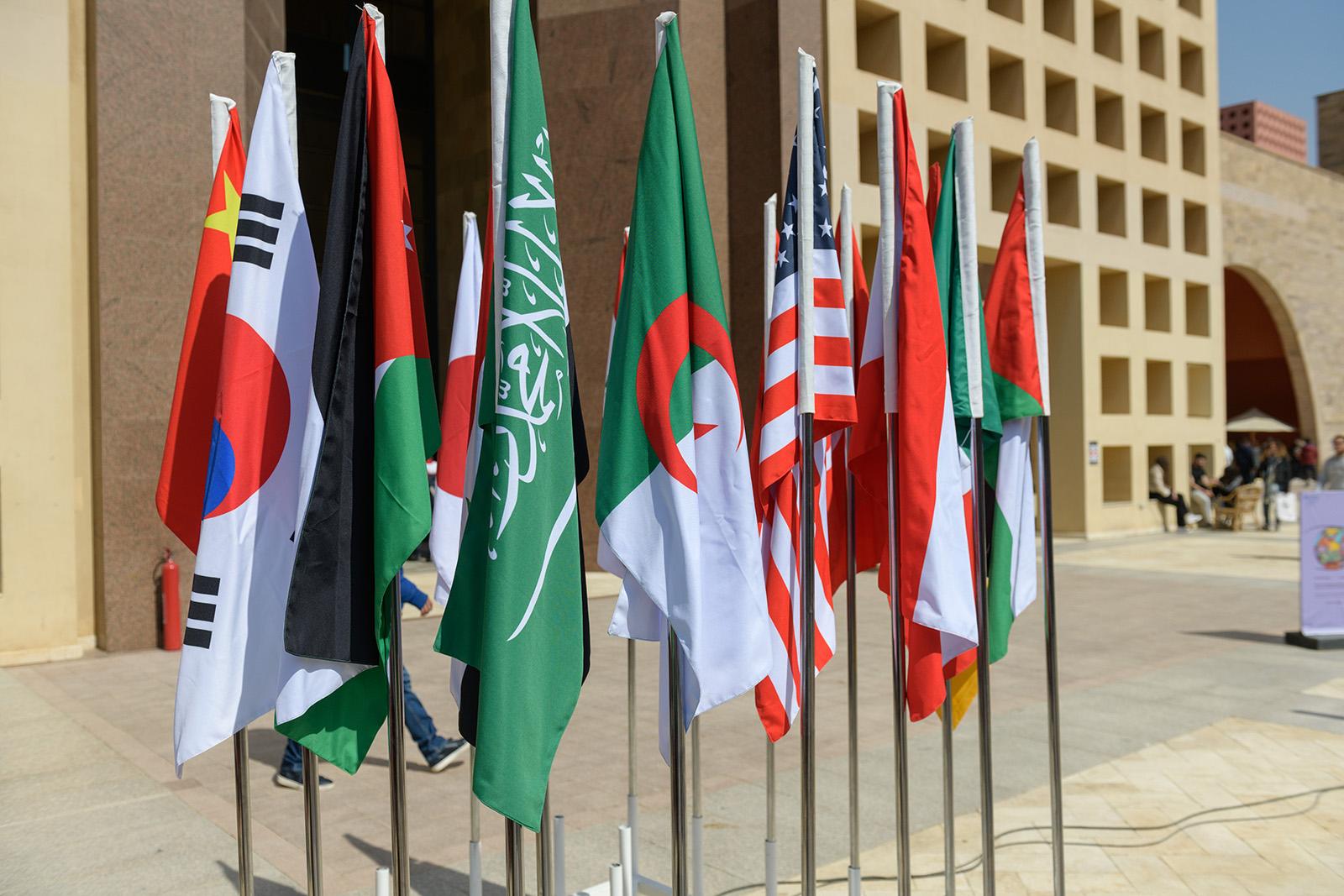About Khamasin
As an interdisciplinary journal, Khamasin seeks to publish theoretical, field and research-driven studies which address a variety of issues within the scope of political science in particular, and social sciences and humanities in general. Khamasin welcomes submissions from undergraduate and graduate students from universities in Egypt and beyond from various disciplines relating to political science and/or broadly concerned with the Middle East and North Africa.
Submission Guidlines
Stay tuned for the call for papers for Khamasin's upcoming issue.

Current Issue - Spring 2024
This issue explores a wide range of topics, from international relations and regional conflicts to social movements and cultural analyses. This edition marks a special milestone for Khamasin, as it is the first time that the editorial board comprises entirely of students. I am deeply grateful to Dr. Javed Massoud and the department for entrusting me with this responsibility and for their unwavering support. Their encouragement has been instrumental in empowering us to take on this leadership role and bring this issue to life.
Khamasin Issues
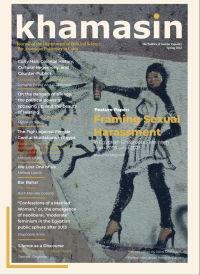
Spring 2022
This edition of the journal took as its point of departure and inspiration the grassroots feminist burst of activity in the past several years in Egypt. Women and girls have taken to social media to highlight issues ranging from street harassment and assault to domestic violence, marital rape, gang rape, seeking legal and public action. The visibility of these stories has forced a national conversation that has long been denied.
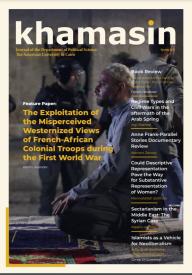
Spring 2021
During the process of this issue’s publication, the Israeli government has once again used force against peaceful worshipers in the Al-Aqsa mosque while simultaneously displacing Palestinians from their homes. In solidarity with the Palestinian people and their struggle against colonialism, we have decided to adopt a picture manifesting the Palestinian struggle.
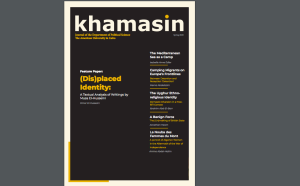
Spring 2020
The authors in this issue completed their submissions under difficult conditions of lockdown and isolation, while also living through a historical moment where communities around the world were confronting governments with their colonial and imperial legacies and ongoing racialized structures of violence.
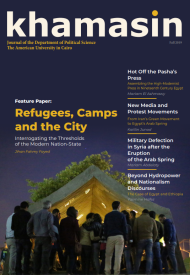
Fall 2019
The selected papers in this Fall 2019 issue address a range of interrelated and timely topics in the present period, including border policing, political exclusion, the mobilization of space and nature as part of state formation, the politics of media and communication, and collective struggle in policed spaces. The papers in this issue begin a discussion around the relationship between state policies, political resistance movements, and our scholarly work and responsibilities as members of academic institutions.
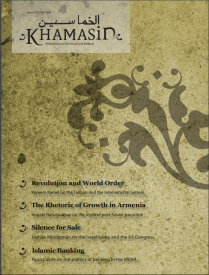
Spring 2018
This is the fifth issue of Khamasin: Reflections on Society and Politics in the Middle East. In this issue, Reham ElMorally elaborates in her paper why having an intersectional post-colonial perspective is crucial in gender mainstreaming of international development projects. Besides, Ashrakat Abdelsamad’s article “Bolivian Experience with Neoliberalism: What Lessons for Egypt?. Hana Shaltout article titled “Salama Killa, The Destiny of Arab Revolutions: A Theoretical Analysis for the Purpose of Crystallizing a New Strategy of the Left”. A comparative Survey of Research Papers by Arab Scholars 2004-2014 by Othman Omran Khalifa, Aisha Hassan Abdallah, and Nasser Youssef.
Previous Issues
For previous Khamasin Issues click on the issues below:
| Contact Us |
|---|
The Department of Political Science |
